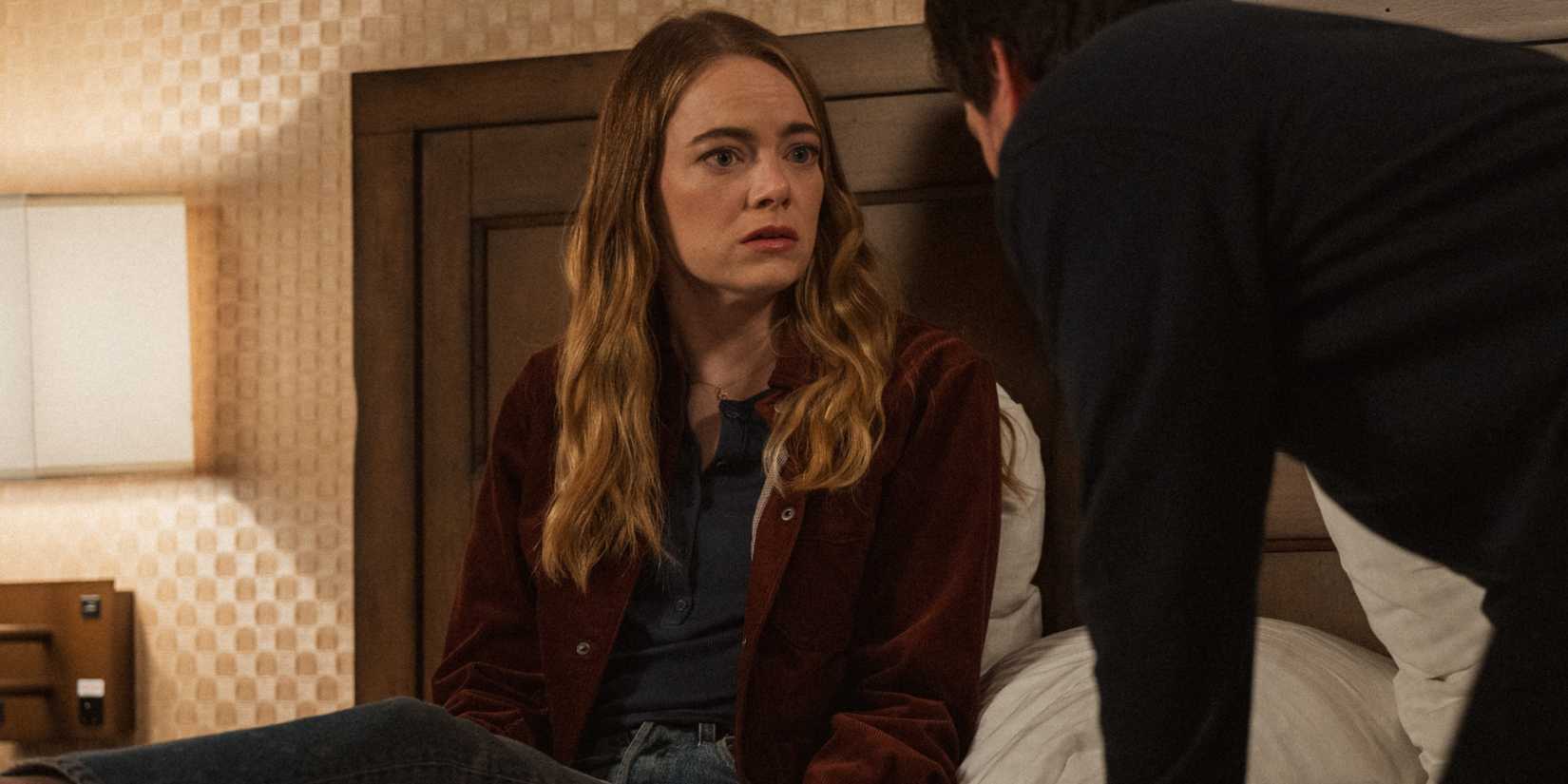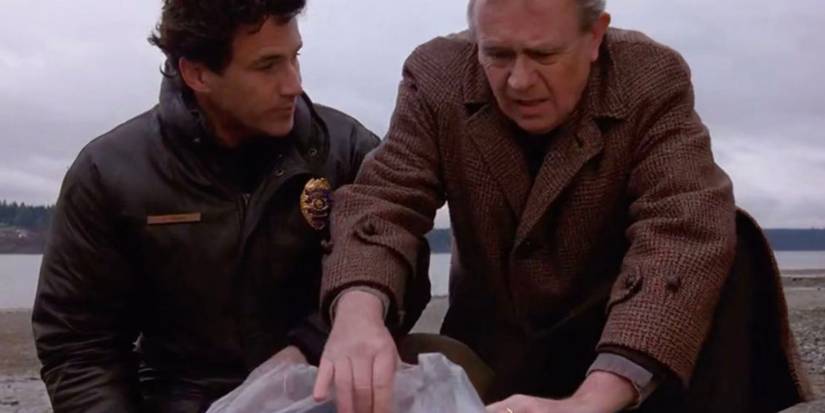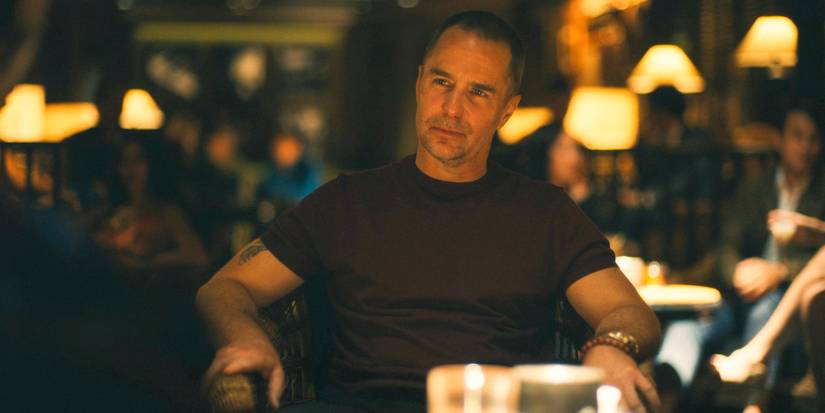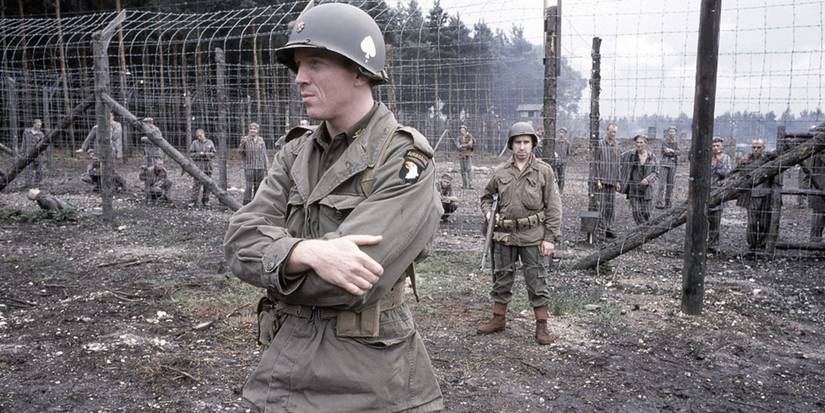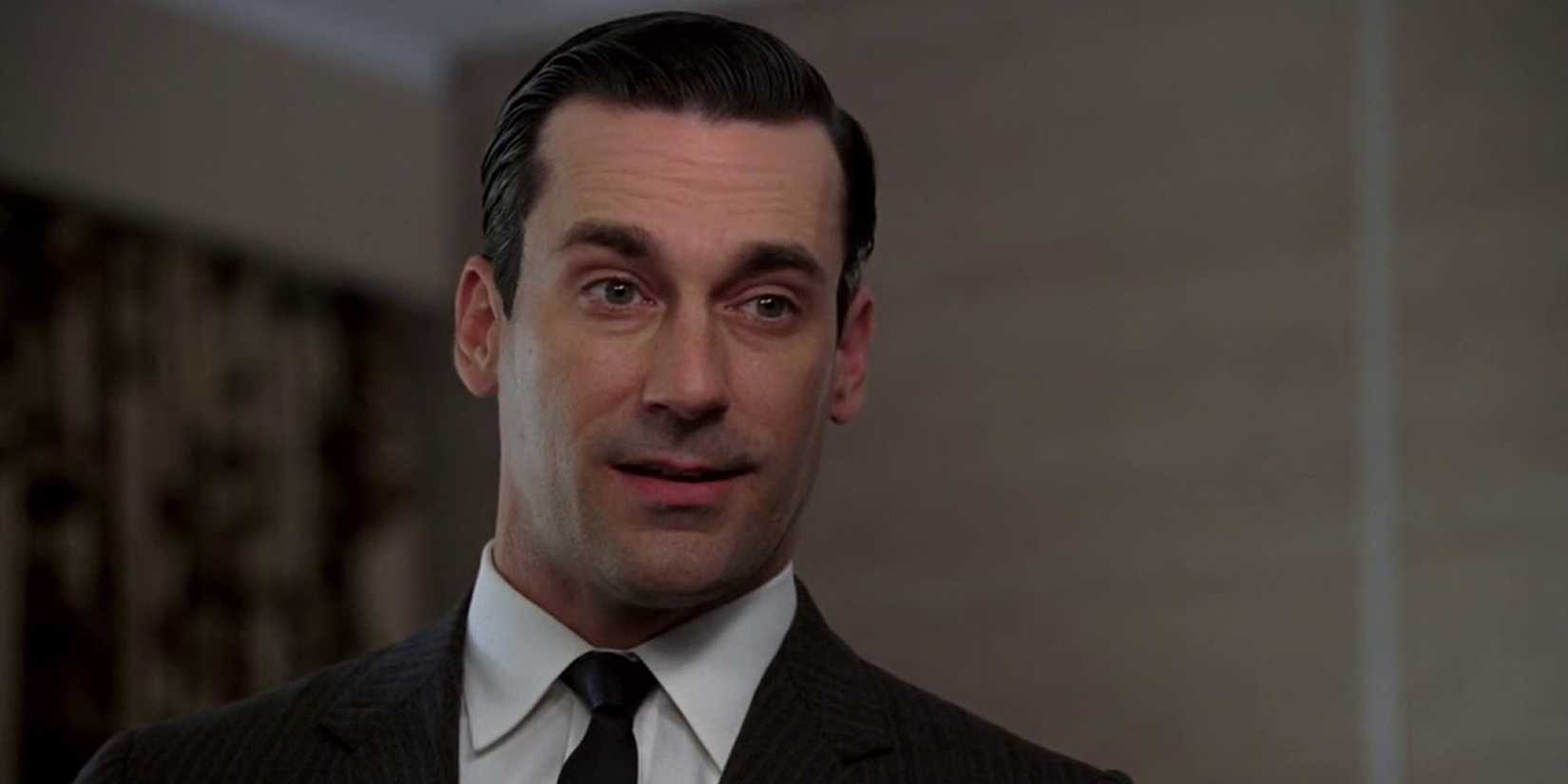The best TV dramas of all time are carried by powerful, perfectly executed scenes like Snoop buying a nail gun in The Wire’s season 4 premiere. A really well-written, well-acted scene acts as both a crucial piece of a larger narrative and a standalone masterpiece.
Shows like Breaking Bad, Succession, and The White Lotus are full of incredible scenes. From Don’s carousel speech in Mad Men to Christopher’s disastrous intervention in The Sopranos, these are the greatest scenes from TV dramas.
Vic Mackey Murders Terry Crowley
The Shield
In its pilot episode, The Shield set itself apart from other cop shows right out of the gate. The episode sees Internal Affairs investigator Terry Crowley infiltrating Vic Mackey’s corrupt Strike Team to build a case against them. Initially, it seems as though Terry will be the protagonist of the show, going undercover to take down Vic.
But in the pilot’s shocking final moments, Vic murders Terry and frames a drug dealer for the killing. The undercover cop isn’t our protagonist; the corrupt one is.
Asher’s Meltdown
The Curse
When Nathan Fielder made his dramatic acting debut alongside one of the best performances of Emma Stone’s career, some critics opined that the Nathan for You prankster didn’t have the chops to go toe-to-toe with Stone. But those critics quickly changed their tune after The Curse aired its penultimate episode.
In the climactic moments, Fielder’s Asher confronts Stone’s Whitney about a cut of their reality show deliberately meant to humiliate him. Rather than getting angry like she wants him to, he doubles down on his worship and his obsession and his humiliation fetish. Whitney trembles in a stunned silence, mirroring the audience’s own reaction, as Asher melts down in front of her.
Discovering Laura Palmer’s Body
Twin Peaks
There were plenty of perfect scenes in David Lynch and Mark Frost’s supernatural soap opera Twin Peaks, but the one that got viewers hooked from the get-go was the discovery of Laura Palmer’s body in the pilot episode. The titular town seemed so quaint and sleepy, but this corpse hinted at its creepy underbelly.
This inciting incident didn’t just set up the plot that would bring Dale Cooper to town; it also established the show’s unique atmosphere. It’s an eerie, almost horror-like inversion of a small-town soap.
Tony Picks Up AJ From The Police Station
The Sopranos
We start to see the impact of Tony Soprano’s criminal lifestyle on his son when AJ tries to kill Junior to avenge his dad. After AJ is caught with a knife at Junior’s nursing home, Tony has to pick him up from the police station. The genius of James Gandolfini’s performance is encapsulated in this scene.
Gandolfini conveys disappointment and compassion simultaneously. Tony is both touched that AJ wants to honor him and heartbroken that he went down the path of violence. Tony is clearly let down, but he still deeply cares about his son.
Lalo Kills Howard
Better Call Saul
The first half of Better Call Saul’s final season played a lot like The Sting, with Jimmy and Kim pulling off a series of elaborate pranks to destroy Howard’s reputation and force him to settle the Sandpiper case. But it ended in a much more harrowing tragedy than the Paul Newman/Robert Redford caper.
When Howard comes to confront Jimmy and Kim, Lalo Salamanca enters the picture. This whole sequence building up to Lalo shooting Howard like it’s nothing is still one of the most intense things I’ve ever seen. The actors all play the horror of it perfectly.
Sam Rockwell’s Monologue
The White Lotus
Sam Rockwell’s surprise appearance was the best part of The White Lotus’ weakest season. When Walton Goggins’ Rick stops by a fancy hotel bar to see his old friend, Rockwell’s Frank fills him in on what he’s been up to in Thailand.
Everything about this scene, from Rockwell’s delivery to Goggins’ disturbed reactions to the juxtaposition of a classy setting with Frank’s tales of debauchery, is pitch-perfect. This scene came completely out of left field and ended up being the highlight of the whole season.
Desmond’s Phone Call With Penny
Lost
Widely considered to be Lost’s greatest episode, “The Constant” is both a fascinating exploration of time-travel paradoxes and an ode to the power of love. Desmond spends the whole episode flashing between 1996 and 2004, desperately trying to stabilize his place in the spacetime continuum.
The emotional climax of the episode is a phone call. Desmond finally connects with his “constant,” Penny, who’s been searching for him for years. It’s both a well-earned resolution to the plot and a heartwarming romantic moment.
Walt Calls To Absolve Skyler
Breaking Bad
The third-to-last episode of Breaking Bad, “Ozymandias,” is one of the greatest hours of television ever produced. It’s the action-packed climax of the series, where Walt’s criminal empire crumbles and his two worlds come crashing together with disastrous consequences. In the episode’s most shocking scene, Walt kidnaps his baby daughter Holly to take on the lam with him.
However, when Holly cries out for mama, Walt has a change of heart. He calls Skyler, knowing the police will be listening in, and makes up a cock-and-bull story to absolve her of her involvement in his crimes. Bryan Cranston nails this performance-within-a-performance: the mix of Walt’s fake viciousness over the phone and the real heartbreak he’s holding back.
Easy Company Liberates A Concentration Camp
Band of Brothers
If you’re telling a story set during World War II, the quickest way to cut to the audience’s bone is to take them inside the walls of a concentration camp. In Band of Brothers’ most harrowing scene, Easy Company comes across an abandoned concentration camp, still filled with emaciated prisoners, and liberates them.
Not only is this scene an accurate recreation of the real historical event, and a powerful piece of visual drama; it’s also a crucial stepping stone in the story. By this point, the soldiers have all become disillusioned with the war. But seeing the unspeakable horrors of the Nazi regime up close reminds them why they’re fighting.
Don’s Carousel Pitch
Mad Men
In real life, advertising is a soulless, artless medium. But Mad Men had an uncanny ability to mix some passion and humanity into the industry. In the season 1 finale, when Don pitches Kodak a campaign for their carousel slide projector, he uses photos of his own family’s precious memories to convey the beauty and intimacy of a home-brewed slideshow.
Don is even moved by his own pitch. Seeing these touching moments from his life with his wife and kids evokes a powerful sense of nostalgia and reminds him of the importance of family.
This story originally appeared on Screenrant


